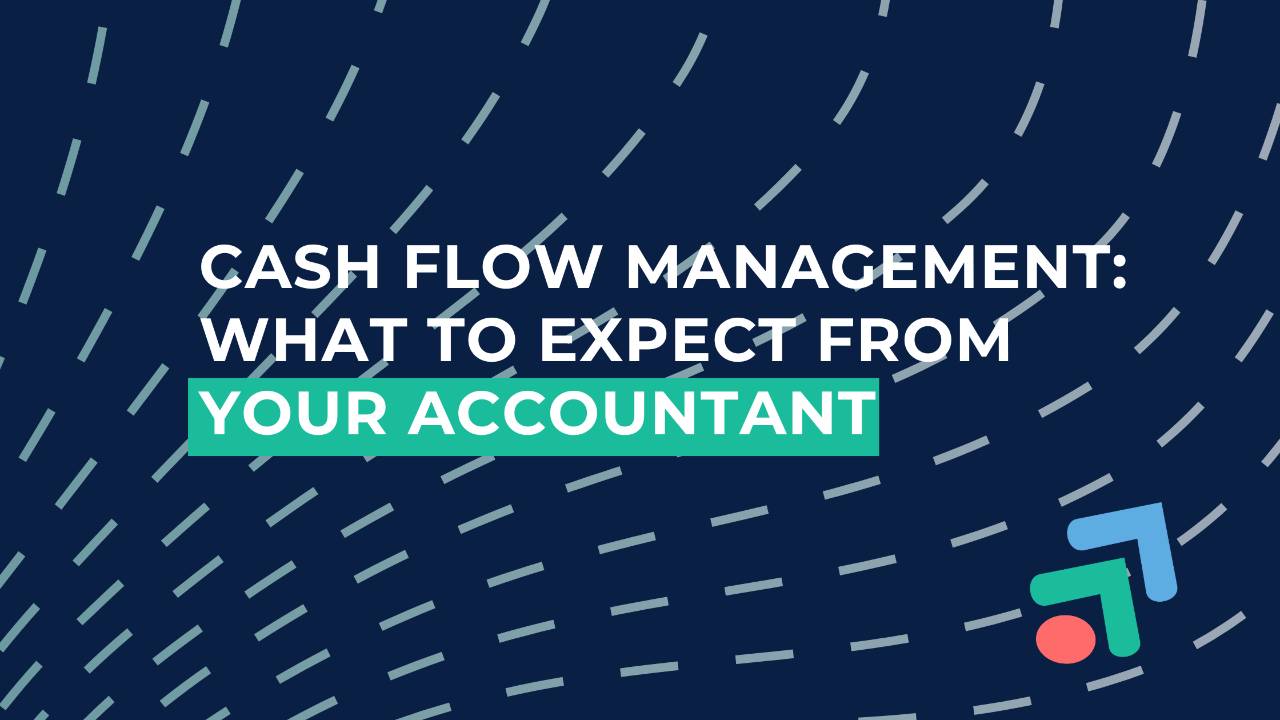What Should Your Internal Accountant Be Doing for Your Cash Flow?
Jul 08, 2025
A Founder’s & Business Owners Guide to Getting Real Value Beyond Just “The Books”
You’ve grown your business, revenue is up, and you finally hired an internal accountant.
Great!
But now you’re wondering:
-
“Are they just here to do data entry?”
-
“Should they be managing cash flow actively?”
-
“What should I hold them accountable for?”
Many founders assume their accountant naturally “handles cash flow.” But without clear expectations, important cash insights can slip through the cracks—leaving you blindsided by cash shortages.
In this article, we’ll break down exactly what a CEO or business owner should expect from an internal accountant when it comes to managing cash flow.
Why Cash Flow is More Than “Doing the Books”
Plenty of business owners think:
“I’ve got an accountant—they’re on top of cash flow.”
But there’s a big difference between:
✅ Recording history (bookkeeping, tax compliance)
❌ Proactively managing future cash flow (forecasting, risk planning)
Without proactive cash management, businesses can appear profitable on paper yet run out of cash—a founder’s worst nightmare.
Key Cash Flow Responsibilities for Internal Accountants
Here’s what you should expect from an accountant who’s truly managing your cash flow—not just punching numbers into accounting software.
1. Maintaining Accurate Cash Records
At a basic level, your accountant should:
-
Reconcile bank accounts regularly (weekly or daily in fast-moving businesses)
-
Accurately classify all cash inflows and outflows
-
Ensure financial data is current
This forms the foundation for any reliable cash flow analysis.
2. Preparing Regular Cash Flow Forecasts
Your accountant should:
-
Prepare a rolling 13-week cash flow forecast
-
Update it weekly or biweekly
-
Highlight upcoming cash gaps or surpluses
Forecasting helps you make decisions before a cash crisis hits.
3. Identifying Cash Risks and Shortfalls
Your accountant should:
-
Spot trends like customers paying slower
-
Flag rising costs that could strain cash
-
Alert you to tax or debt payments coming due
They should act like an early-warning system—not just report what already happened.
4. Managing Working Capital
Good cash management means optimizing:
-
Accounts Receivable → chasing late payers
-
Accounts Payable → negotiating better terms
-
Inventory levels → avoiding excess stock tying up cash
Your accountant should actively track and manage these levers.
5. Providing Insightful Reports
Your accountant should deliver cash reports that are:
✅ Clear and visual (charts > spreadsheets)
✅ Action-oriented (“Here’s what we should do…”)
✅ Regular (weekly or monthly)
You shouldn’t have to decode cryptic accounting jargon to know your cash position.
6. Helping You Plan for Growth
As you grow, your accountant should help model:
-
Cash needed for new hires or locations
-
Equipment purchases
-
Marketing campaigns
-
Seasonal swings
They should turn your business vision into numbers—so you know if you can afford your plans.
Signs Your Accountant Isn’t Managing Cash Flow Properly
Watch out for these red flags:
❌ You only hear about cash issues after they happen
❌ You don’t receive regular cash flow forecasts
❌ Forecasts are just copies of your P&L, not real cash predictions
❌ There’s no discussion of risks or “what-if” scenarios
❌ You’re constantly surprised by cash shortfalls
If these sound familiar, it’s time to reset expectations
Key Takeaway
Hiring an internal accountant is a huge step forward—but don’t assume they’re automatically managing your cash flow proactively.
Expect and empower them to:
✅ Keep cash records accurate
✅ Produce forecasts
✅ Identify risks
✅ Help you plan for growth
Cash flow is the oxygen of your business. Make sure your accountant is helping you breathe easy.
Call to Action
Curious if your accountant is covering all the right bases for cash flow? Drop a comment or reach out—we’d love to help you benchmark your accounting team’s cash management practices.
Find out more about how Chiefly can help you
The Chiefly Dispatch
Clarity for growing businesses. In your inbox.
Running a $1M–$20M business without a COO? You’re not alone.
The Chiefly Dispatch delivers real-world insights, simple tools, and strategic nudges to help you scale smarter—across the stuff that usually falls through the cracks
We hate SPAM too.

